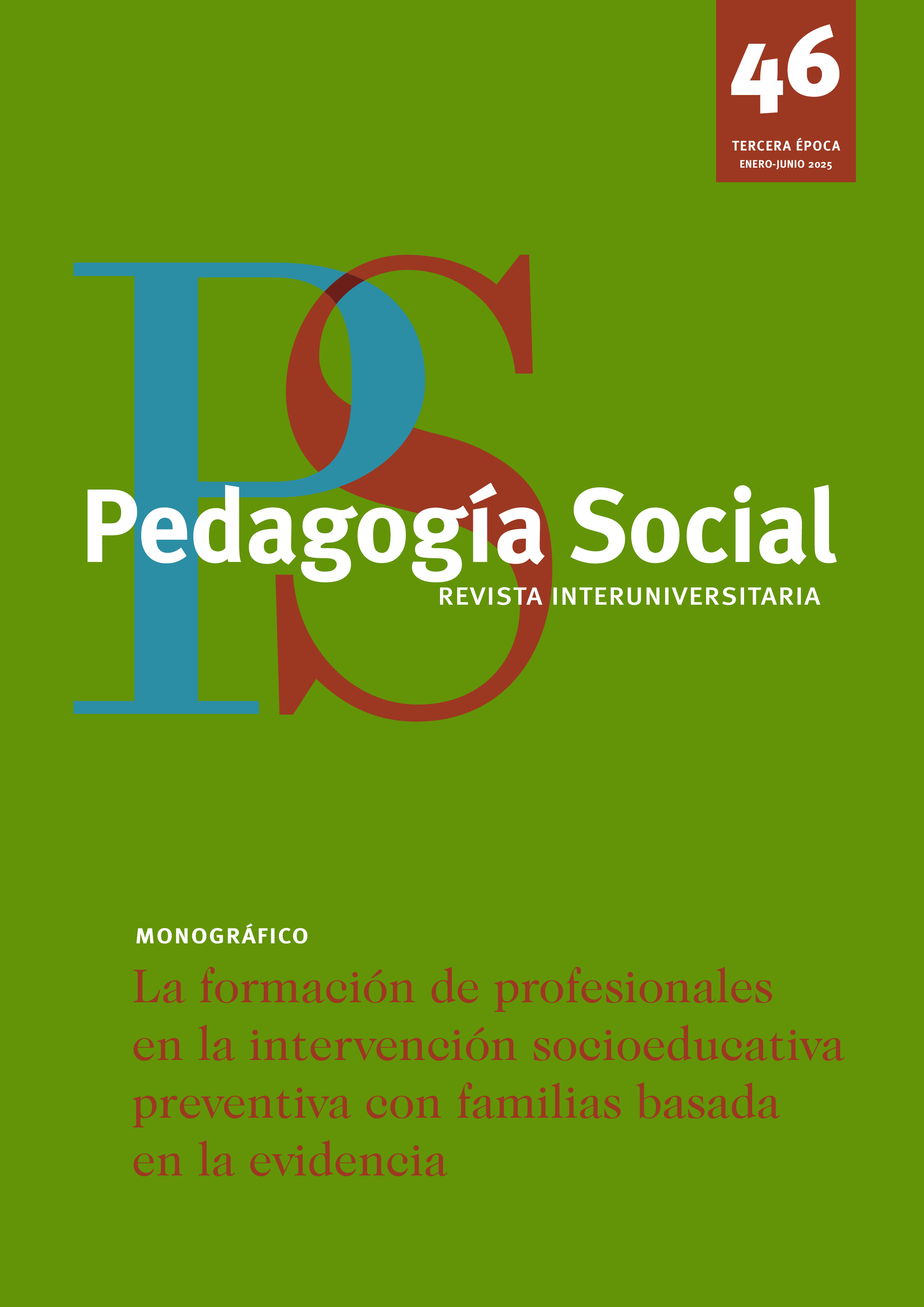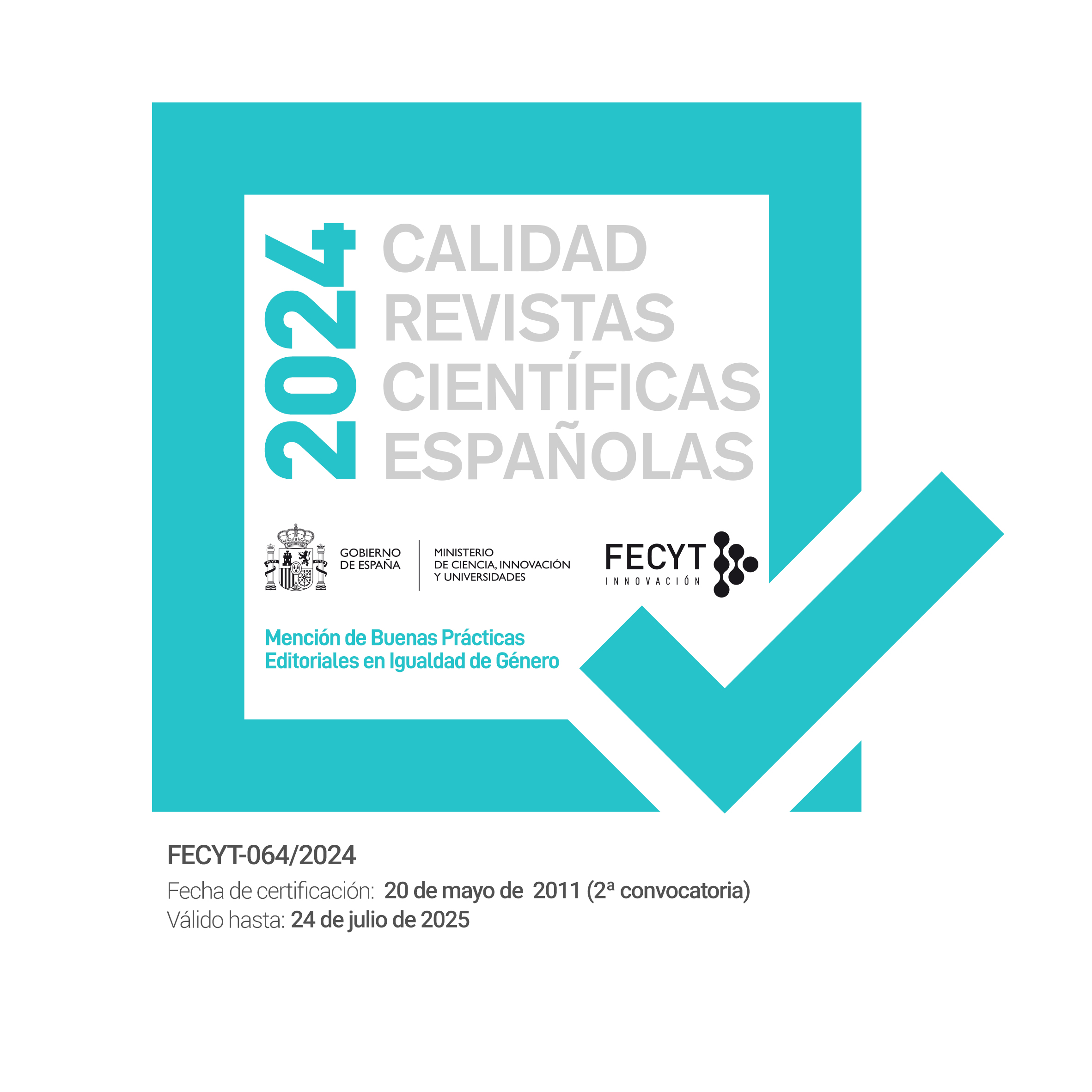Social networks and linkages: a systematic literature review (PRISMA) on the impact of social capital in youth communities
DOI:
https://doi.org/10.7179/PSRI_2025.46.12Keywords:
Social capital, youth, social networks, online communities, linkagesAbstract
In today’s digital society, social networks have acquired great importance in the lives of young people, who use them as virtual spaces to establish and maintain social relationships. The aim of this systematic literature review is to analyze the potential of use of social networks to contribute to the development of social capital in virtual communities of young people. Following the indications of the PRISMA 2020 statement, 18 relevant studies that met the established inclusion and exclusion criteria were identified and selected. The results indicate that social networks play a significant role in the development of social capital in virtual youth communities. These platforms provide opportunities for social interaction, identity building and community participation, thus strengthening social connections, strengthening young people’s sense of belonging and empowering them.
Downloads
References
Bano, S., Cisheng, W., Khan, A. N. y Khan, N. A. (2019). WhatsApp use and student’s psychological well-being: Role of social capital and social integration. Children and youth services review, 103, 200-208. doi:10.1016/j.childyouth.2019.06.002
Brough, M., Literat, I. y Ikin, A. (2020). “Good social media?”: underrepresented youth perspectives on the ethical and equitable design of social media platforms. Social Media+ Society, 6(2), 2056305120928488. doi:10.1177/2056305120928488
Brown, M., Pyle, C. y Ellison, N. B. (2022). “On My Head About It”: College Aspirations, Social Media Participation, and Community Cultural Wealth. Social Media+Society, 8(2), 20563051221091545. doi:10.1177/20563051221091545
Codina, L. (2021). Scoping reviews: características, frameworks principales y uso en trabajos académicos. (2021, 1 de septiembre). Lluís Codina. https://www.lluiscodina.com/scoping-reviews-guia/
Dredge, R. y Schreurs, L. (2020). Social media use and offline interpersonal outcomes during youth: A systematic literature review. Mass Communication and Society, 23(6), 885-911. doi:10.1080/15205436.2020.1810277
Guirao Goris, S. J. A. (2015). Utilidad y tipos de revisión de literatura. Ene, 9(2). doi:10.4321/S1988-348X2015000200002
Gureeva, A., Anikina, M., Muronets, O., Samorodova, E. y Bakalyuk, P. (2022). Media activity of modern Russian youth in the context of value systems1. World of Media. Journal of Russian Media and Journalism Studies, (1), 25. doi:10.30547/vestnik.journ.5.2021.5173
Junus, A., Kwan, C., Wong, C., Chen, Z. y Yip, P. S. F. (2023). Shifts in patterns of help-seeking during the COVID-19 pandemic: The case of Hong Kong’s younger generation. Social Science & Medicine, 318, 115648. doi:10.1016/j.socscimed.2022.115648
Kasperski, R. y Blau, I. (2023). Social capital in high-schools: teacher-student relationships within an online social network and their association with in-class interactions and learning. Interactive Learning Environments, 31(2), 955-971. doi:10.1080/10494820.2020.1815220.
Kornbluh, M. E. (2019). Building bridges: Exploring the communication trends and perceived sociopolitical benefits of adolescents engaging in online social justice efforts. Youth & Society, 51(8), 1104-1126. doi:10.1177/0044118X17723656
Llena, A. y Úcar, X. (2006). Acción comunitaria: miradas y diálogos interdisciplinarios. https://dialnet.unirioja.es/servlet/libro?codigo=10867
Llena Berñe, A., Planas-Lladó, A., Vila-Mumbrú, C. y Valdivia-Vizarreta, P. (2023). Factors that enhance and limit youth empowerment, according to social educators. Qualitative Research Journal, 23(5), 588-603. doi:10.1108/QRJ-04-2023-0063
Martínez, L. M. y Úcar, X. (2022). The generation of community social capital in the Poble Sec community plan (Barcelona). Community Development, 53(4), 477-498. doi:10.1080/15575330.2021.1987487
Matenda, S., Naidoo, G. M. y Rugbeer, H. (2020). A study of young people’s use of social media for social capital in Mthatha, Eastern Cape. Communitas, 25, 1-15. doi:10.18820/24150525/Comm.v25.10
Newman, M. (2019). Linking 4-H to Linksters. The Journal of Extension, 57(3), 21. doi:10.34068/joe.57.03.21
Nursey-Bray, M., Masud-All-Kamal, M., Di Giacomo, M. y Millcock, S. (2022). Building community resilience through youth volunteering: towards a new model. Regional Studies, Regional Science, 9(1), 242-263. doi:10.1080/21681376.2022.2067004
Page, M. J., McKenzie, J. E., Bossuyt, P. M., Boutron, I., Hoffmann, T. C., Mulrow, C. D., … y Moher, D. (2021). The PRISMA 2020 statement: an updated guideline for reporting systematic reviews. International journal of surgery, 88,105906. doi:10.1016/j.ijsu.2021.105906
Ramos Mancilla, Ó. y Flores-Fuentes, G. (2023). Educación informal y entornos digitales entre jóvenes de comunidades indígenas. Revista electrónica de investigación educativa, 25. doi:10.24320/redie.2023.25.e05.4298
Soler Masó, P., Trilla Bernet, J., Jiménez Morales, M. y Úcar Martínez, X. (2017). La construcción de un modelo pedagógico del empoderamiento juvenil: espacios, momentos y procesos. Pedagogía Social. Revista Interuniversitaria,30, pp. 19-34. doi:10.7179/PSRI_2017.30.02
Theben, A., Juárez, D. A., Lupiáñez-Villanueva, F., Peña-López, I. y Porcu, F. (2021). Participación y ciudadanía activa de los jóvenes a través de Internet y las redes sociales. Un estudio internacional. BiD: Textos universitarios de biblioteconomía y documentación, (46), 3. doi:10.1344/BiD2020.46.01
Tisdall, E. K. M. y Cuevas-Parra, P. (2022). Beyond the familiar challenges for children and young people’s participation rights: the potential of activism. The International Journal of Human Rights, 26(5), 792-810. doi:10.1080/13642987.2021.1968377.
Tulibaleka, P. O. y Katunze, M. (2023). Rural-Urban Youth Migration: the Role of Social Networks and Social Media in Youth Migrants’ Transition into Urban Areas as Self-employed Workers in Uganda. In Urban Forum (pp. 1-20). Dordrecht: Springer Netherlands. doi:10.1007/s12132-023-09494-y.
Valdivia, P., Úcar, X., y Ciraso Calí, A. (2022). Integrar a jóvenes adultos/as con menos oportunidades en las organizaciones y reforzar su empoderamiento. https://ddd.uab.cat/record/275804?ln=ca
Walby, K. y Gumieny, C. (2020). Public police’s philanthropy and Twitter communications in Canada. Policing: An International Journal, 43(5), 755-768. doi:10.1177/14614448211015805
Wong, B. (18 de mayo de 2023). Top Social Media Statistics And Trends Of 2024. Forbes Advisor. https://www.forbes.com/advisor/business/social-media-statistics/#source
Woolcock, M. y Narayan, D. (2000). Social capital: Implications for development theory, research, and policy. The world bank research observer, 15(2), 225-249. https://vtechworks.lib.vt.edu/bitstream/handle/10919/67567/Social-Capital.pdf?sequence=1&isAllowed=y
Yuen, S. y Tang, G. (2021). Instagram and social capital: youth activism in a networked movement. Social Movement Studies, 1-22. doi:10.1080/14742837.2021.2011189.
Published
How to Cite
Issue
Section
License

This work is licensed under a Creative Commons Attribution-NonCommercial-ShareAlike 4.0 International License.
Copyright and right to archive
The published version of the articles can be self-archived by their authors in open access institutional and thematic repositories. However, Pedagogía Social. Revista Interuniversitaria must authorize partial or global reutilisation on new papers or publications.
Published papers must be cited including the title of the journal Pedagogía Social. Revista Interuniversitaria, issue, pages and year of publication
Ethical responsibilities
Pedagogía Social. Revista Interuniversitaria does not accept any material that has been previously published in other documents or publications. Authors are responsible for obtaining the required permissions for partial or global reproduction any material from other publications, and to correctly quote its origin.
Pedagogía Social. Revista Interuniversitaria is obliged to detect and report fraudulent practices.
Only those who have intellectually contribute to the development of the paper must appear as authors.
The journal expects authors to declare any commercial partnership that might entail a conflict of interest with respect to the submitted article.
Authors must mention in the article, preferably in the “methodology” section, that the procedures used during the samplings and controls have been made after getting informed consent.
The journal will not use any received contribution in a way other than the goals described in these guidelines.
Copyright Notice
© Pedagogía Social. Revista Interuniversitaria. Papers published in both the printed and online versions of this Journal are property of Pedagogia Social. Revista Interuniversitaria, being required to cite the source in any partial or total reproduction.
Unless otherwise stated, all content of this electronic journal is distributed under "Creative Commons Attribution-Non commercial 3.0 Spain" (CC-by-nc) license for use and distribution. The informative version and the legal text of this license is available here. This has to be expressly stated in this way when necessary.






